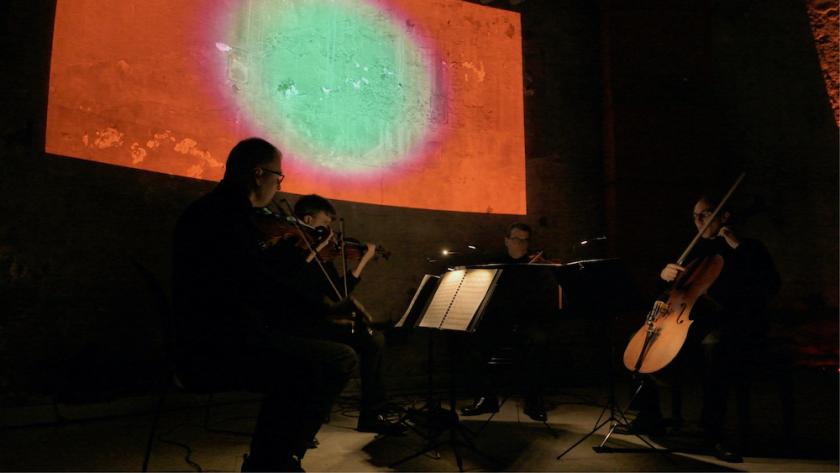London concert life is infinitely varied, especially if you dig below the surface. So after spending Tuesday evening in the lofty Royal Albert Hall, on Wednesday I was 16 metres below ground, in the tunnel shaft of the Brunel Museum in Rotherhithe for a multi-media event celebrating Yuri Gagarin’s flight into space, 62 years ago to the day.
The Brunel Museum and the Royal Albert Hall represent two sides of Victorian London: the celebration of high culture and of engineering and “progress”. And although it has none of the elaborate decoration and fine boxes, the Thames Tunnel is an extraordinary achievement: the world’s first tunnel created under a navigable river. It was Isambard Kingdom Brunel’s first big project, working with his father Marc, and for a while it gave London pedestrians the opportunity to walk below the Thames. Later converted into a railway tunnel, the shaft that was the entrance is now a performance space, circular, still blackened by train-soot, but actually offering a pretty good acoustic.
The Gagarin Quartets are 12 movements for string quartet, depicting Gagarin’s 108-minute journey, accompanied by animated projections on the tunnel wall and interspersed with soundscapes, which more or less abstractly interpreted the flight. These interludes, made by Nicholas de Carlo, who also wrote the music, worked well in the resonant space – but I might have welcomed more interaction between them and the live musicians, rather than just a simple alternation.
The music itself was what used to be called “systems music”, although that term has dropped out of fashion. It is minimalist in the vein of Michael Nyman or Max Richter, although a bit more harmonically adventurous than those composers tend to be. It had the same chugging rhythms, deftly layered textures and a good sense of pacing. If I had listened to them without knowing the context I don’t think I would have thought of Gagarin, or of space travel. There wasn’t much that suggested either the emptiness of space, or of Gagarin’s own experience of anxiety and adrenaline.
The visual projections, by Johnathan Goddard and Julian Bigg, were often equally distanced from the subject. There were animated lines depicting cityscapes, or geometric shapes emerging and being coloured, then suddenly a hint of spaceship – and one episode that seemed to represent a migraine attack. All enjoyable in itself, and complementing the music intriguingly, but somehow divorced from Gagarin’s groundbreaking flight. In some ways, the music connected more with the sophisticated engineering of the tunnel, and the mechanical movement of the trains that go through it to this day, than to the world of space travel.
The playing by the Modulus Quartet was excellent. They were subtly amplified, allowing them to explore a range of sounds, always with a very keen sense of rhythm – strongly articulated by cellist Nick Allen – and a very tight ensemble.














Add comment